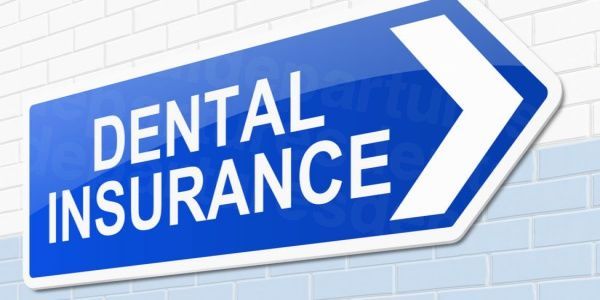If you’re looking for tips on how to get discount dental work in New Zealand, we have some suggestions for saving money that may not have occurred to you. While these tips are more appropriate for general dental care, it is possible to get cheap dental implants or other expensive procedures, for a fraction of the usual cost.
As the lack of affordable dental care in New Zealand continues to bite, many of us are seeking ever more ingenious ways of caring for our teeth on a budget. Truth is, the dental health system is failing thousands of adults—with estimates that almost half the population don’t visit a dentist at all unless they have an imminent problem. This is an issue, not just because good dental health is rooted in preventive care, but because if small problems are not dealt with early, they inevitably become bigger, more expensive issues to resolve down the road.
Thus, if you’ve lost teeth, you may be looking to replace them with dental implants, or full-arch bridges. These procedures are far superior to other teeth replacement options, like dentures, but are considerably more expensive.
Dental Implants and Full-Arch Dental Implants – What’s the difference?
-
The traditional dental implant procedure is generally performed to replace single teeth or multiple missing teeth, but not all the teeth (although, there is no reason why all the teeth couldn’t be replaced with individual implants, apart from the expense). Meanwhile, a full-arch procedure replaces all the teeth in your jaw (either upper or lower), using just four implants.
-
For patients with bone loss, traditional dental implants are not usually suitable without first undergoing a bone graft. However, a full-arch procedure, such as the All-on-4® treatment concept by Nobel Biocare, may be suitable for patients with bone loss, because the posterior implants are longer than traditional implants. Inserted at a 45-degree angle at the back of the jaw, they provide a greater surface area and higher bone density, making for a more stable implant.
-
Traditionally, dental implants take a number of months for the treatment to be completed. For the implant to be strong and stable, it needs to integrate with the jaw bone (a process called osseointegration). Thus, after an implant has been placed, you must wait at least three months before returning for your crown—the final part of the procedure—to be attached. However, the All-on-4® treatment concept can often be completed in a day (and is thus often called ‘teeth in a day’).
How Long is the Recovery Period?
Except for a couple of days of some swelling and bruising, the recovery period is surprisingly swift for dental implants. Most people experience few after-effects, but nothing that will interfere with everyday activities. In fact, many people who have a full-arch treatment may well be completely toothless on the day of their procedure but will leave with a full set of functioning teeth later that day, able to go out and enjoy a restaurant meal without any problems (stick to the soup and pasta the first couple days!).
What is the Cost of Full-Arch Implants and Dental Implants in New Zealand?
The cost of dental implants in New Zealand is around NZD $5,500 per implant, and full-mouth restorations are considerably more, at around NZD $29,000.
Top Tips for Saving Money on Dental Care
#1 Get Covered with Dental Insurance

Paying into a monthly plan for dental insurance is a reasonable way of paying for general dental costs. Plans vary as to what is covered, as well as prices, but it may be worth considering as a way of preserving your dental health and preventing any major problems by getting regular check-ups, teeth cleaning and general, preventive procedures, such as fillings.
Insurance presumes you have decent dental health in the first place as most policies won’t cover you for pre-existing conditions unless you pay a big premium. Second, most dental insurance policies do not provide coverage for cosmetic dentistry—and in most cases, dental implants are considered to be a cosmetic procedure. So, if you were hoping to get affordable dental implants with insurance then you’ll have to think again. See more on dental insurance.
#2 Spread the Cost with Dental Financing

One way of funding dental care is with a loan. This is something you may want to consider if there’s a one-off, or expensive, procedure you wouldn’t ordinarily be able to afford. Dental loans are available for all kinds of dental care, from a root canal to a cosmetic dentistry treatment, including dental implants and full restorations. It’s worth doing your research thoroughly and getting a few quotes, as the interest rates vary considerably between lenders. Just because you are offered a high rate with one company doesn’t mean you will with another; it could be the difference between you getting an affordable full-arch restoration or making do with your old dentures.
#3 Use a Dental Payment Plan to Make Regular Direct Debit Payments Toward Dental Treatment

Dental payment plans are a little like a savings plan in that you make regular small payments into the plan at your chosen dentist’s office, which entitles you to some basic treatments every year. These will vary from plan to plan but are likely to include, for example, x-rays, one consultation with the dentist and two hygienist appointments per year. They typically also offer a discount, around 10%, on other dental treatments or services.
A dental plan could help to spread the cost of your basic dental care across the year. However, if you don’t attend your included appointments they aren’t carried over and it may work out to be more expensive if you miss a couple. Check with chosen dentist and plan about the clinic’s policy.
#4 Make Huge Savings by Travelling Abroad for Dental Treatments

Dental tourism is increasingly becoming an option for people who opt to combine their regular dental care with a holiday. For example, if you are planning to head to Thailand anyway, then a tooth-colored composite filling costs less than a quarter of the price you would pay in New Zealand—which could be a saving of NZD $100. Not to be sniffed at!
And, if you are searching for cheap dental implants or an affordable full-mouth restoration, you can find them in Thailand where the price is around NZD $2,250 compared to NZD $5,500 for a single implant. For the All-on-4® treatment concept in Thailand, the price is a stunning NZD $12,420, compared to NZD $29,000 in New Zealand.
#5 Become A Dental School Volunteer

One way that students of dental schools get clinical experience is by treating real patients like you. Have a search for a dental school volunteer program near you and you may find your general dental care is a fraction of the price charged by a traditional dentist. All treatments are supervised by fully-qualified and experienced dentists, and you may well be treated by a post-graduate student, who will already be a fully-qualified dentist undertaking advanced training.
#6 Take out a 0% APR Credit Card

One way of paying for your dental care is with a 0% credit card. While a 12-month window is common, 24-month deals are not unusual, with some cards stretching to 30 months or more, giving you nearly three years to pay off the cost of your treatment without incurring any interest charges. This may be a way of getting affordable treatment without breaking the bank. Beware that failure to pay the principal in full by the stated deadline can result in significant penalties and high-interest rates, so you will want to be confident full payment can be achieved on time.
#7 You May be Eligible for Dental Charity Services

Disadvantaged and financially vulnerable people may be eligible for free dental care provided by a dental charity. Homeless persons, refugees, the elderly, low-income adults and victims of domestic violence are some of the people who may benefit from the mobile services travelling the country providing treatment, education and dental packs (toothbrushes, toothpaste, dental floss, etc).
#8 Sign up for a Healthcare Savings Account
![]()
Healthcare savings accounts (HSA’s) offer a triple tax break and if your company offers it, many employers are encouraging their employees to sign up. Contributions are tax-free and the funds can be withdrawn as needed for tax-free medical expenses, including dental work. Your HSA can also be used as a retirement savings fund, and employers add a bonus to the accounts each year. It’s essentially a supercharged savings account; in the event you need to use you’ll be glad to have the cash. If you don’t, you have extra cash that might be otherwise unavailable when the time comes.
The bottom line is that whether you’re looking for cheap dental implants or affordable fillings, your work is cut out for you in New Zealand. However, these tips hopefully help show you ways to save money—sometimes significant sums—or a choice of treatment that might not otherwise be within your reach.


